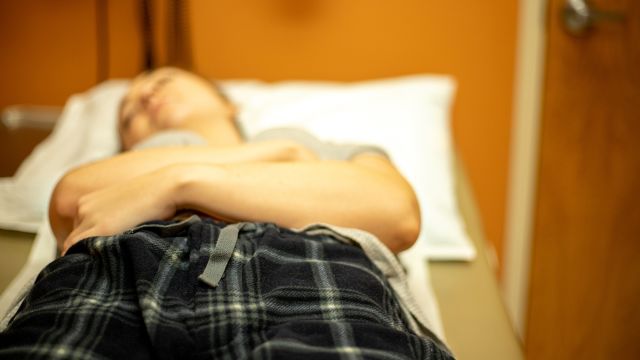Many people with Crohn’s disease will need surgery at some point during their lifetime.
There are a number of different surgical procedures that are commonly used to treat Crohn’s disease. The type of surgery used will depend on the parts of the gastrointestinal tract that are impacted by Crohn’s and the complications a person is experiencing.
The goals of surgery are to provide relief from symptoms and complications, improve quality of life, and preserve healthy tissue in the gastrointestinal tract.
When surgery is recommended
Surgery for Crohn’s disease may be recommended if the disease does not respond to treatment with medication or if medication must be discontinued due to side effects. Surgery may also be needed to address a complication from Crohn’s disease, such as a blockage, perforation, abscess, or bleeding in the intestines.
Types of surgical procedures
The type of surgical procedure will depend on the symptom or complications being addressed, and the location of the symptom or complication. There are several different surgical procedures that may be used to treat Crohn’s disease. In some cases, these surgical procedures can be performed with endoscopy or laparoscopy.
- Strictureplasty. A stricture is a narrowing of a passage in the body. Crohn’s disease can cause strictures in the intestinal tract. A strictureplasty is a procedure to widen a section of intestine that has become narrowed.
- Resection. This procedure involves removing a portion of the intestine that has a stricture or has been damaged by Crohn’s. Resection surgery can be performed on the small intestine (called a small bowel resection), the large intestine (called a large bowel resection), or the terminal ileum that connects the small intestine to the large intestine (called an ileocecal resection).
- Abscess drainage. An abscess is a collection of pus (which is a mixture of white blood cells, germs, and dead tissue). Abscesses are a complication of Crohn’s disease that can occur inside the abdominal cavity, in the pelvic organs, or the anal area. They can also be a complication following surgery. If an abscess cannot be drained with other methods, it may need to be drained surgically in addition to being treated with antibiotics.
- Fistula removal. Abscess and ulcers in the intestines can cause fistulas—passageways between the intestines and adjacent parts of the body. These may require surgery to repair.
In cases where the disease is severe or there are severe complications, the colon and/or rectum may need to be removed with surgery:
- Colectomy. This procedure involves the removal of the colon, which is part of the large intestine. Once the colon is removed, the small intestine will be connected to the rectum to allow waste to leave the body.
- Proctocolectomy. This procedure involves removing the colon as well as the rectum. Surgeons will make a small opening in the abdomen that will allow waste to leave the body. This opening is called a stoma. After this surgery, a person will wear a pouch under their clothes to collect waste, which can be emptied as needed.
Work with your healthcare provider
As mentioned above, most people with Crohn’s disease require surgery at some point. The best thing you can do as a patient with Crohn’s disease is to work with a healthcare provider. Educating yourself about the disease, your treatment options, and the surgical procedures used to treat Crohn’s disease can help you feel more confident when making treatment decisions.






